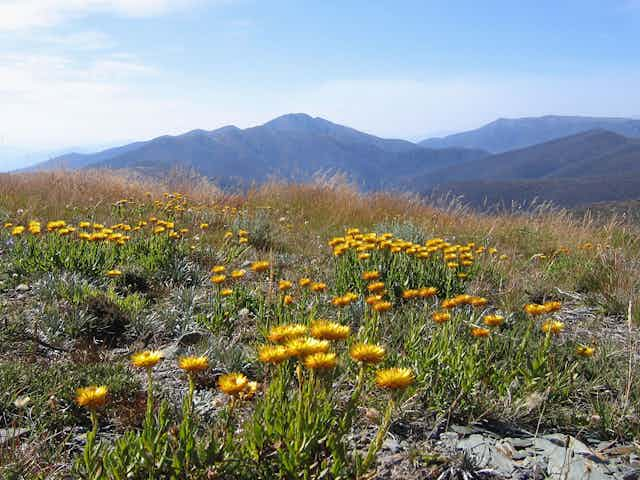The electioneering has begun. In a campaign set to be dominated by economic issues, the Coalition and Labor are locking horns over who can best manage our finances, protect jobs and make housing more affordable. The Greens predictably decry the major parties, including their cavalier climate-change policies.
These are important issues, but are they highest priority on the political agenda? An arguably even greater issue exists that nobody is seriously championing, but which impacts all of us, socially, environmentally and economically.
Our natural heritage – the plants, animals and other organisms that help define Australia’s identity – are in dire straits. Yet this biodiversity crisis is barely mentioned in political discourse, nor is it foremost in the public consciousness.
The world economy is losing €50 billion (A$73 billion) a year through lost ecosystem services. It is predicted to lose €14 trillion per year by 2050 without action now. With potentially 7% of global economic product at stake by mid-century, nature conservation must surely be on the agenda in this election.
Actions needed to conserve our natural heritage, and reap substantial rewards, will challenge some of our most cherished ideas about social and economic policy. This demands reforms to reverse creeping losses to our democratic process.
Looking at the major parties’ platforms, it is clear that nature is not on the agenda. Labor lists 23 positive policies, none of which deals directly with conserving Australia’s plants and animals. The Liberal-National Party has done slightly better, claiming to believe in preserving Australia’s natural beauty and environment for future generations. However, its federal platform, released last year, shows no evidence of this belief.
Public concern has also shifted away from nature issues and towards other concerns like terrorism, as well as traditional areas of focus such as health care and the economy. This shift can be seen in some surprising places, such as the major grassroots lobby group GetUp – of its ten current campaigns only one, the Great Barrier Reef program, is directly about conserving wildlife diversity.
Environmental riches, but for how long?
The value of biodiversity to humans is well established (for example, see here, here, and here). Biodiversity reduces stress, crime and disease. It also provides new economic opportunities and many other benefits, from climate control, to flood defence, to the many benefits delivered by birds.
These are just the tip of the iceberg, but like the polar ice they are at risk of disappearing through our neglect.

Despite biodiversity’s immense value, Australia’s natural heritage is not assured. Good news stories exist, but as a succession of government State of the Environment reports over recent decades has shown, our natural heritage continues to be squandered.
The reports cite population growth, economic growth and climate change as key drivers of decline. Land clearing and invasive species also lead to biodiversity loss. All must be addressed to reverse the alarming trajectory of our wildlife.
These threats to our natural heritage should be high on the political agenda. But despite recent extinctions, caused in no small part by a failure to act quickly on conservation advice, bureaucrats and politicians have failed to rise to the challenge. Australia’s plants, animals and other wildlife continue to be swept aside with an enthusiasm and abandon reminiscent of the 19th-century pioneers.
Why the lack of action?
Nature is missing in action from the political agenda for many reasons. Here are two key ones: questionable political donations and processes, and the gagging of the public service, government and university scientists. Both issues go to the heart of our democracy.
Australia has some of the weakest electoral laws concerning political donations and spending. Time lags between receiving donations and declaring them means that appropriate scrutiny of policy motivations, particularly at election times, is uncommon. This is concerning, because links between political favours for donors, while hard to prove, are frequently noted.
These correlations are not surprising. Corporate political activities are typically not gestures of goodwill, but a widely accepted corporate strategy aimed at securing better outcomes. Because many companies depend on using land for activities such as digging up resources and clearing native vegetation, the success of their political donations can often be reflected in damage to nature.
Equally concerning is the deafening silence from people who really know how damaging government policies can be for the environment. Inconvenient truths might challenge government policies. So public servants, including government scientists, are prohibited from speaking, or tweeting. Governments will go to extremes more often seen in the pages of crime thrillers to track down and punish whistle-blowers.
Governments attempting to silence academics hit the spotlight over cattle grazing trials in Victorian national parks. A senior Victorian public servant reportedly threatened to withdraw further funding from the University of Melbourne if the university did not agree to oversee the government’s grazing trial, despite the trial being widely regarded as flawed and unnecessary. Faced with this type of pressure, many university scientists simply avoid public debate for fear of damaging their job prospects or government funding.
In this climate of silence, major biodiversity issues and damaging government policies aren’t appropriately aired. The public don’t hear about it and so can’t make informed decisions at the polling booth. Consequently, government and public service barriers to honest media coverage undermine an informed democracy.
Valuing and preserving nature are critical for our well-being and prosperity, but species continue disappearing at alarming rates to causes we could better manage.
There are things that can be done, at a political level, to help stop this erosion of Australia’s natural heritage before it’s too late. In addition to adequately funding conservation, we should reform political funding rules. We should also encourage, even legally require, honest and open disclosure of how government policy impacts our environment.

